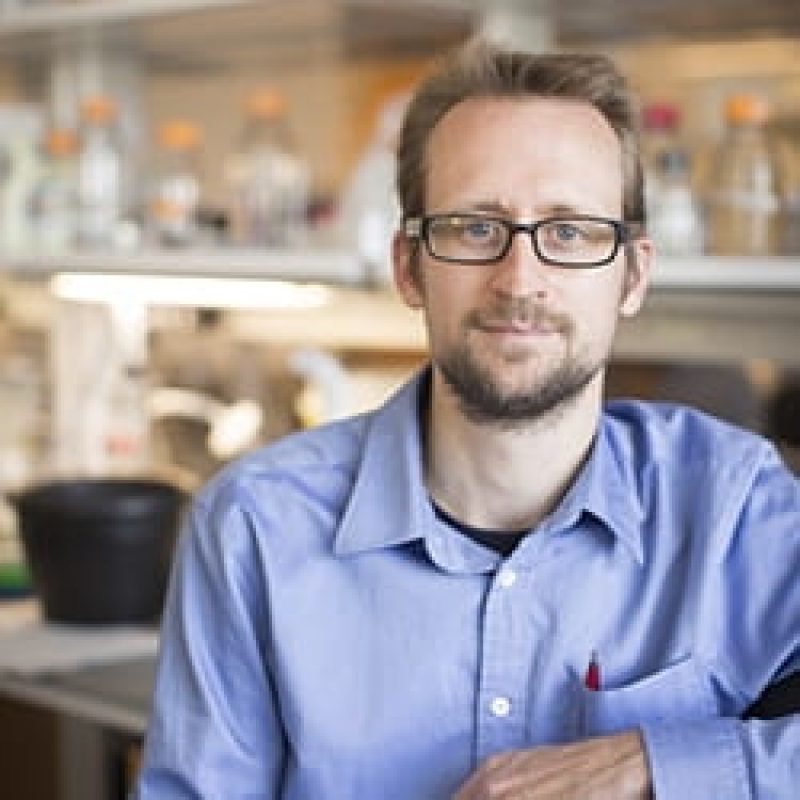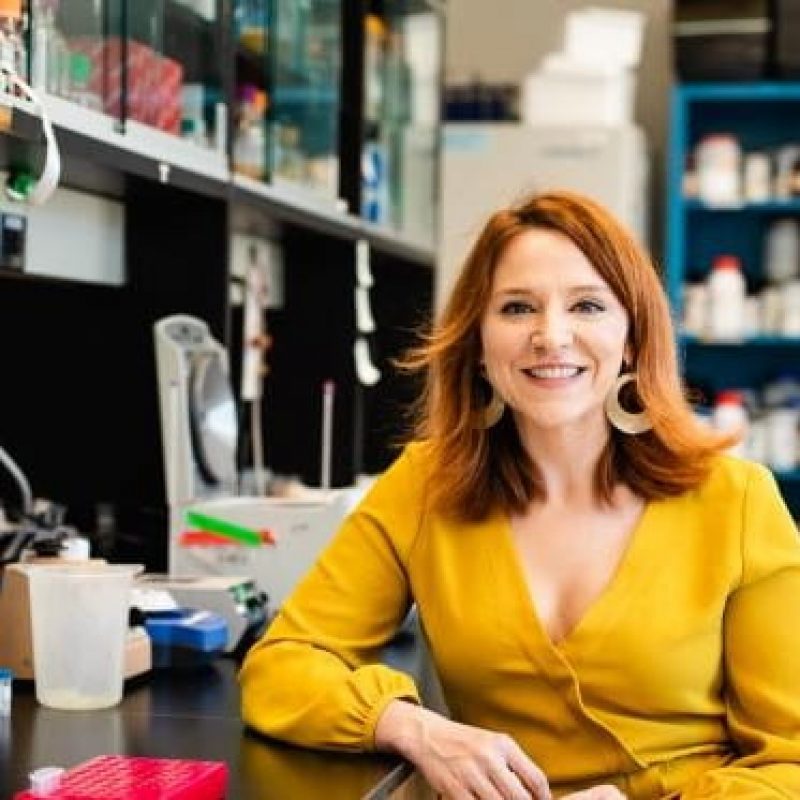Tag: Genetics, Genomics and Cell Biology of Infection
-

Elizabeth Johnson
We study how lipids mediate host-microbiome interactions. A potential student project in the lab involves using techniques developed in the lab to identify novel interactions of saturated fatty acids with the gut microbiome and developing advanced techniques in anaerobic microbial genetics to determine the consequences[...] -

Tory Hendry
The Hendry lab studies how environmental bacteria interact with insect hosts. Our main focus is understanding how plant-associated bacteria influence the health and behavior of insect herbivores. Students will design mesocosm experiments with culturable bacteria growing on plants and herbivorous insects, using skills in bacteriology[...] -

John Helmann
We use Bacillus subtilis as a model system to characterize the bacterial stress responses elicited by metal ion limitation and excess during infection, and by host-produced antibiotics that interfere with integrity of the cell envelope. The resulting insights are relevant for understanding the mechanisms that allow bacterial[...] -

Michelle Heck
Our research uses a combination of molecular, genetic, and proteomics approaches to understand how insects transmit plant pathogens and how pathogens manipulate host plants to ensure replication and transmission. For instance, students will characterize the transmission rates of viruses by different genotypes of aphids in[...] -

Maria Harrison
Most flowering plants develop mutualistic symbioses with arbuscular mycorrhizal (AM) fungi to improve access to essential mineral nutrients. The fungal endosymbionts are housed in membrane-bound compartments within root cells. Our research combines genetic, genomic and cell biology approaches to dissect the plant and fungal cellular[...] -

Laura Harrington
My research focuses on the biology, ecology and behavior of mosquitoes that transmit human diseases such as dengue fever, West Nile virus and malaria. I have developed methods for studying blood feeding patterns, survival and longevity, mating behavior and feeding behavior of mosquitoes in both[...] -

Megan Greischar
Parasite life history strategies within the host, especially the timing of replication and transmission, influence disease severity and spread. I study how subtle differences in ecology within and outside the host can generate dramatic differences in parasite strategies. My research program uses two major approaches:[...] -

Tobias Dörr
We study how bacteria respond to and survive stressful conditions, particularly damage to the cell envelope. Students in the Doerr lab learn techniques ranging from microscopy and image analysis to molecular biology. The lab is very active with undergraduate research and has extensive experience in[...] -

Pamela Chang
Our research focuses primarily on three areas: We develop activity-based probes to understand the metabolic activity catalyzed by the gut microbiome during different disease states. We also characterize the small-molecule metabolites produced by the gut microbiota that regulate inflammation during inflammatory diseases and host defense[...] -

Clare Casteel
Numerous studies demonstrate that vector-borne pathogens influence host characteristics, resulting in altered host-vector interactions and enhanced transmission. We seek to determine the molecular mechanisms that underlie this phenomenon and use this knowledge to develop innovative control strategies using genetic and biochemical approaches. Current focuses are[...]
